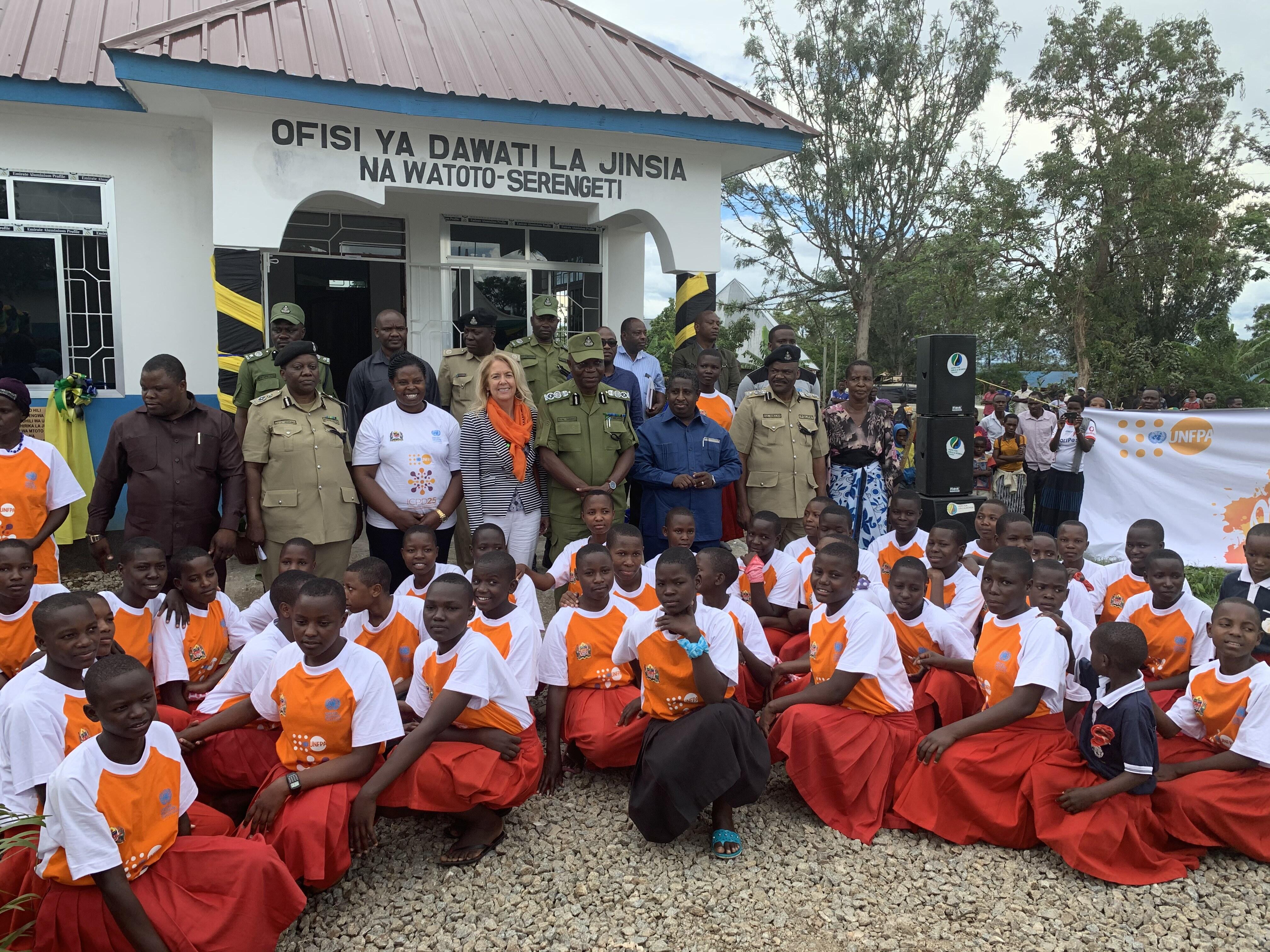27 November 2019. UNFPA continues to support efforts to build a stronger response to violence against women and children in Tanzania with the launch of three Police Gender and Children’s Desks (PGCDs) in Mara Region. The launch of the Desks in Bunda, Butiama and Serengeti Districts from 27 to 29 November coincided with the 16 Days of Activism, a global campaign that calls for an end to gender-based violence (GBV) which runs from 25 November, the International Day for the Elimination of Violence Against Women, to Human Rights Day on 10 December.
UNFPA – as part of inter-agency efforts – is supporting the Government of the United Republic of Tanzania to implement the National Plan of Action to End Violence Against Women and Children. The five-year plan sets out a costed, harmonized, multisectoral and collaborative approach to make good on the pledge to eliminate GBV by 2030, overwhelmingly backed by world leaders as part of the 2030 Agenda.
Notwithstanding the Government’s commitment, violence against women is a common occurrence in Mara Region – 61 per cent of women (aged 15 to 45 years) have been subjected to physical violence while 23 per cent have experienced sexual violence – both figures higher than the already high national average. But survivors rarely tell their stories with only 9 per cent of women in Tanzania making a report to the Police, citing limited resources for care and support as their main reason for remaining silent.
The construction of the three PGCDs in Mara Region mean that women who are reporting incidents of violence no longer have to approach the main desk in the police station but are taken to a separate building, where officers – predominantly female – are specially trained to handle cases such as domestic violence, rape and sexual assault. Officers working at the desks are also closely linked to teams working in the healthcare and social service sectors, maximising efficiencies and ensuring that survivors receive the timely care and support they need to start rebuilding their lives.
UNFPA, supported by the Governments of Norway and Sweden through the One Fund, has equipped PGCDs in Zanzibar and Manyara Region over the past year and continues to support the Children’s Dignity Forum (a Tanzanian NGO) to build the capacity of Police to handle GBV cases effectively, treating survivors with dignity. In December 2019, an additional three PGCDs, constructed with UNFPA’s support, will be launched in Buhigwe, Manyovu and Uvinza, Kigoma Region, adding to the 420 plus desks that are now operational across Tanzania and Zanzibar.
Jacqueline Mahon, UNFPA Representative in Tanzania, urged women and children to use the PGCDs in Mara Region and to speak out and break the wall of silence and shame that exists around violence, reemphasizing UNFPA Tanzania’s commitment to accelerating efforts to achieve zero GBV against women and girls by 2030 and a Tanzania in which every woman and child enjoys their right to live a life free of violence.


